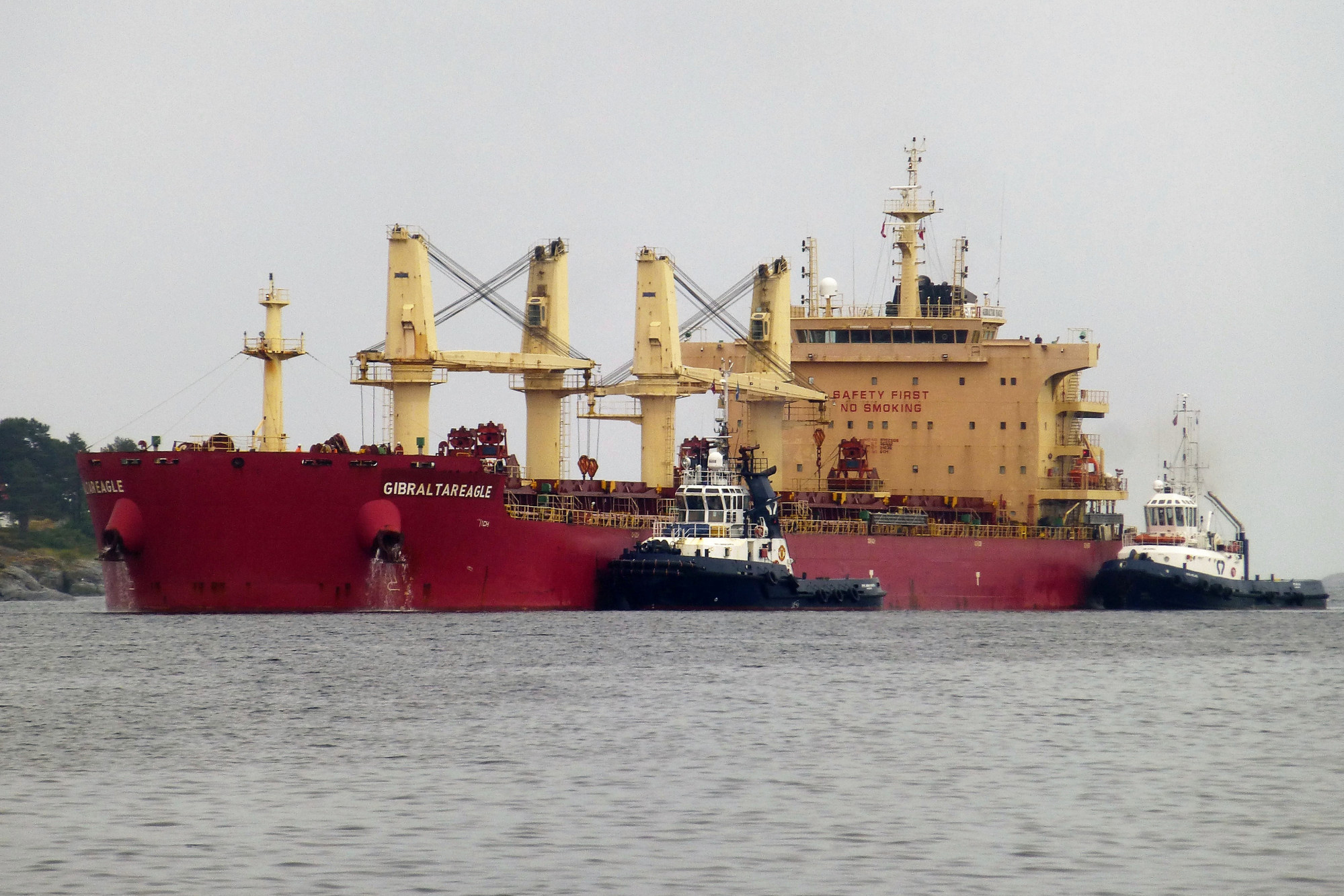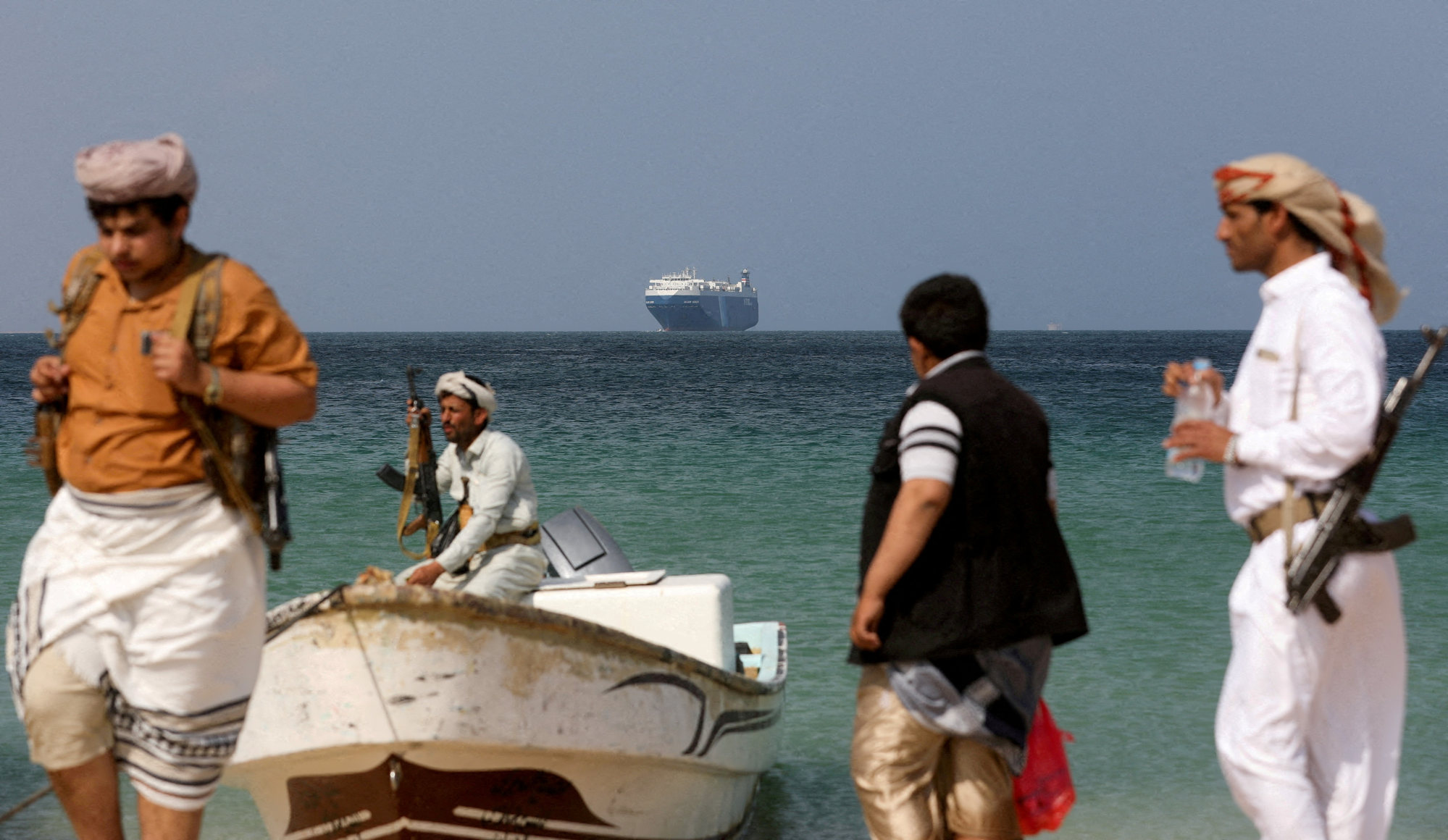Red Sea risks could push oil prices up as Asia feels pinch of cargo delays, rising costs
The attack followed a warning by the Houthis of a “strong and effective response” after the United States carried out a strike.
US-UK attacks on Houthis raise war stakes in Middle East amid Gaza conflict
US-UK attacks on Houthis raise war stakes in Middle East amid Gaza conflict
The tensions have ratcheted up war premiums on shipping freight, with many having to take a longer route since late last year. Now, more oil and gas tankers are being diverted from the troubled Red Sea route.
Despite the rise in tensions across a region that supplies a third of the world’s crude, the fallout on Asia is likely to be limited to more expensive crude oil and longer waiting period for cargoes rather than a threat to its supplies, analysts say.
“If the conflict remains low-simmering, localised to the Red Sea, and does not expand to the Strait of Hormuz [near Iran], oil supplies to Asia are unlikely to be affected. The Strait of Hormuz is far more important for oil supplies to Asia and is a transition point for nearly 20 per cent of global oil consumption,” said Pushan Dutt, professor of economics at INSEAD.
“Unless Iran becomes a direct participant in the conflict, oil supplies to Asia should not be affected,” he said.

But Asian importers would feel the pinch of higher freight and insurance costs worldwide, because ships and tankers from the Middle East to Europe had to divert their cargoes to avoid the conflict zone, Dutt said.
“If the Houthis widen their attacks, similar to what they did in 2019 when they attacked Aramco’s oil facilities with drones and missiles, only then will we see a significant spike in oil prices,” he added.
The chances of Iran being drawn into the conflict are low as the country is more comfortable using proxies to project its power, while the US with an eye on the Russia-Ukraine war and China will not want the conflict to escalate, according to Dutt.
“Finally, Israel cannot fight a multifront war and will probably steer clear of a direct confrontation with Iran. Nevertheless, with so many moving pieces and players, the possibility of unintended escalation cannot be entirely dismissed,” he added.
Uncertainty over energy markets
An energy analyst concurred that the immediate effect of the Red Sea violence on Asia’s energy supplies is likely to be manageable.
“We believe the direct impact to Asia is limited,” said Emily Li, Senior China Market Analyst, Vortexa. “There can be [a] bigger indirect impact if oil prices and oil tanker freights go up in the coming weeks.”
Vortexa data showed that out of the seaborne supplies to Asia in 2023, only 10 per cent of crude oil, 6 per cent of clean refined products and 27 per cent of fuel oil and other dirty products went through Bab el Mandeb, a strait between Yemen, Djibouti and Eritrea that is key to shipping between the Indian Ocean and the Mediterranean Sea via the Suez Canal.
“There has not been a major price hike yet, but the Red Sea escalation is disrupting global energy flows, together with other security aspects … could move the market to more of a bullish sentiment in the coming days,” Li said.
Oil markets are also facing pressures from a partial reduction in production in Libya’s top oilfield, traffic congestion in the Panama Canal and severe cold weather in the US which has hit power and energy production, she added.

Another energy analyst said a sharper rise in oil prices had been cushioned by higher US oil inventories and modest uptake from the world’s top consumer China, but warned that prices could jump if the Red Sea conflict escalated.
“In a situation like this, where there are opposing forces acting on oil, generally supply concerns tend to be preferred by participants,” said Gnanasekhar Thiagarajan, director of Commtrendz Risk Management.
Houthi militants have targeted vessels that they say have a connection to Israel, which is locked in a war with Hamas. The rebels have also been launching drones and missiles against Israel, more than 1,000 miles (1,600km) away.
“Because of the recent attacks in the Red Sea, shipment delays have worsened since last year,” Thiagarajan said.
Ships have been forced to divert around the Cape of Good Hope, adding up to two weeks’ journey, or 30-40 per cent more time between Asia and Europe, analysts say.
The delays to cargo are not on account of longer sailing time alone, but also because buyers have to renegotiate contracts due to higher expenses, which means cargoes remain on water until an agreement is reached.


